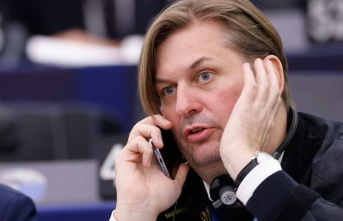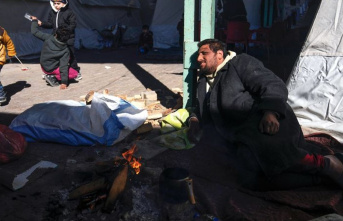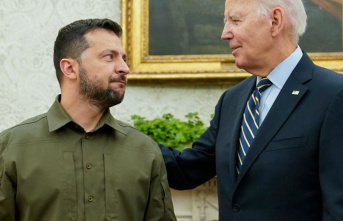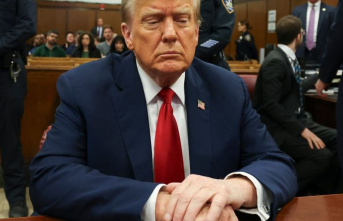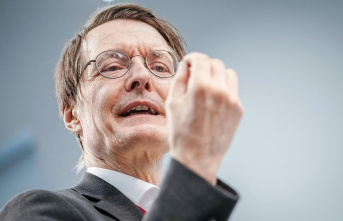The way has been paved for the introduction of the 49-euro ticket for millions of passengers in local bus and train transport. After a long tug of war between the federal and state governments, Chancellor Olaf Scholz (SPD) and the Prime Ministers clarified the last financial questions on Thursday. "The Germany ticket will come now, also very quickly," said Scholz. When exactly it starts in the new year, he left open. So far, the countries are aiming for April 1st. In their last top round in 2022, the federal and state governments also agreed on the details of a hardship fund for companies in the energy crisis.
49-euro ticket: The introduction can now be tackled in concrete terms. "All hurdles have been removed so that those responsible in the federal states and the transport companies can now do everything to ensure that this progresses quickly and efficiently," explained Scholz. The chairman of the conference of prime ministers, Stephan Weil (SPD) from Lower Saxony, said that there was now agreement that the costs incurred in 2023 would be “borne in half”. At the same time, he made it clear that the countries are aiming for a start by the end of the first quarter of 2023. It shouldn't be "a summer issue".
The nationwide usable ticket for buses and trains in local transport is to come with an introductory price of 49 euros per month and tie in with the popular 9-euro ticket from the summer. A digitally bookable, monthly terminable subscription is planned. However, many modalities still need to be clarified. There was a problem with the introduction, which had already been decided in principle, because a new financial dispute had arisen. The federal states expressed doubts about the calculations and demanded that the federal government also bear half of any additional costs. The federal and state governments had already agreed to give half of up to three billion euros a year to compensate for loss of income.
Energy prices: According to Scholz, it was also discussed how to ensure that the prices for gas, district heating and electricity are reduced as long as they are not reduced to a "natural level" again. A hardship fund for small and medium-sized companies was also planned. However, the federal states had rejected financial participation in a federal program. After the meeting, Scholz took it as "a good sign that things can start now". The federal states would supplement the money flowing into the fund from the federal government with their own funds.
North Rhine-Westphalia's Prime Minister Hendrik Wüst (CDU) admitted that it had not been possible to anchor special aid specifically for wood pellet and oil heating. "We now have to give an answer to that in the countries themselves." Scholz gave hope to private households with such heating systems: "As part of the Economic and Stabilization Fund, we have also provided for a hardship regulation aimed at those who have to cope with price increases that they cannot afford, with regard to pellet and oil heating systems ." Scholz added: "We are continuing to discuss whether all practical cases are actually covered."
Health: The Corona crisis, which shaped many federal-state meetings, was also on the agenda. But it's good that the point didn't take that much time, said Scholz. You can now "go into this winter very well" because of the vaccinations in the population. Weil and Wüst did not see the fact that the countries were currently acting inconsistently with loosening masks and isolating infected people as a problem. Each country must decide what is proportionate. "The accusation of a patchwork quilt is quickly raised, but you always have to look at the situation," said Wüst.
The situation remains tense because of the RS virus, which is particularly dangerous for babies. It could be that the peak of the infection wave has been passed, said Weil. "But we also know from Corona, that doesn't mean that the all-clear has been given in the hospitals, but that the peak can still follow there. Transfers will also be necessary." It was agreed that the cloverleaf concept should also be used for national transfers to other clinics.
Insurance against natural damage: There was no agreement on the proposed compulsory insurance against natural hazards, for example in the event of a new flood disaster. Wüst regretted that Justice Minister Marco Buschmann (FDP) had rejected compulsory insurance at the federal-state level. The topic will be on the agenda again next year. In June, the federal states had spoken out in favor of compulsory insurance for natural hazards for all building owners. According to information from government circles, Buschmann was now against this with the following argument: "In a time of great financial burdens on private households, we should keep our hands off everything that makes living in Germany even more expensive."


